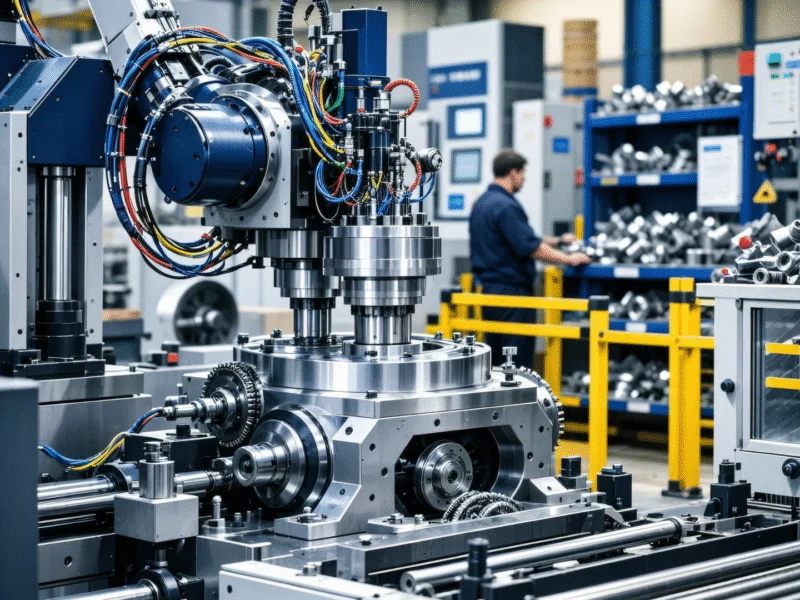In a surprising break from complete alignment, Marjorie Taylor Greene has publicly acknowledged that Trump’s tariffs are creating significant challenges for American manufacturers, describing the implementation as “bumpy” during a recent podcast appearance. The Georgia Republican’s comments represent one of the rare instances where a staunch Trump ally has pointed to practical difficulties arising from the administration’s trade policies.
Manufacturing Sector Feels Tariff Impact
During her appearance on “The Tim Dillon Show”, Greene revealed that manufacturing companies have approached her with concerns about obtaining necessary supplies from overseas due to the current tariff structure. “We’re having problems with these tariffs,” Greene stated, paraphrasing feedback from businesses. “We can’t get supplies from this country, and we can’t get supplies from this country. And there’s problems.”
The congresswoman’s acknowledgment of supply chain disruptions comes amid broader discussions about tariff impacts on domestic manufacturing capabilities. While maintaining support for President Trump’s broader trade objectives, Greene’s comments highlight the practical challenges businesses face in adapting to new trade realities.
Balancing Support With Practical Concerns
Despite identifying implementation issues, Greene emphasized her continued support for the president’s trade agenda. “I do appreciate the president’s efforts. He’s trying to end wars. He’s also trying to make it fair again for American trade,” Greene noted during the podcast discussion available on YouTube. “But at the same time, that’s getting — that is bumpy. It’s bumpy.”
This nuanced position reflects the complex balancing act facing many Republicans in Congress who support the administration’s goals while addressing constituent concerns about policy implementation. The comments from Representative Greene represent a notable departure from her typically unwavering support for presidential policies.
Broader Policy Critiques Emerge
Trade policy isn’t the only area where Greene has expressed concerns about her party’s direction. In an October 6 post on X, the congresswoman criticized Republican leadership for lacking a plan to address impending healthcare premium increases. “Not a single Republican in leadership talked to us about this or has given us a plan to help Americans deal with their health insurance premiums DOUBLING!!!” Greene wrote.
The healthcare premium issue contributed significantly to the early October government shutdown, as Democrats insisted Republicans collaborate on addressing the expiration of Affordable Care Act tax credits. This broader pattern of policy critiques suggests evolving dynamics within congressional Republican ranks.
Immigration Policy Business Impact
Greene also addressed how immigration enforcement affects American businesses, drawing from her personal experience in the construction industry. “I own a construction company, so I’m gonna speak from very real experience: We have a labor force in America, across many industries, that has been built on illegal labor,” she stated during the podcast appearance.
The congresswoman advocated for more nuanced approaches to immigration reform, noting that businesses require stable labor forces to maintain operations. Her comments align with economic research highlighting the complex relationship between immigration policy and business operations.
Industry Adaptation Challenges
The manufacturing sector’s difficulties with tariff implementation reflect broader adjustment patterns across multiple industries. According to industry experts note, businesses across sectors are facing similar adaptation challenges as trade policies evolve. Key issues manufacturers are confronting include:
- Supply chain disruptions affecting production timelines
- Increased material costs impacting profitability
- Competitive disadvantages in global markets
- Operational uncertainty affecting long-term planning
These challenges occur alongside technological transformations affecting multiple sectors, including the post-quantum security enhancements that businesses must simultaneously address. The convergence of trade policy changes and technological evolution creates a complex operating environment for American manufacturers.
Political Implications and Future Direction
Greene’s comments signal potential shifts in how even the most loyal Trump supporters approach policy criticism. While maintaining overall alignment with administration objectives, the acknowledgment of implementation challenges suggests growing attention to practical governance concerns beyond ideological purity.
The manufacturing sector’s feedback to congressional representatives like Greene indicates that business communities are actively engaging with policymakers about trade policy impacts. This dialogue may influence future policy adjustments as the administration balances strategic objectives with operational realities facing American businesses.



